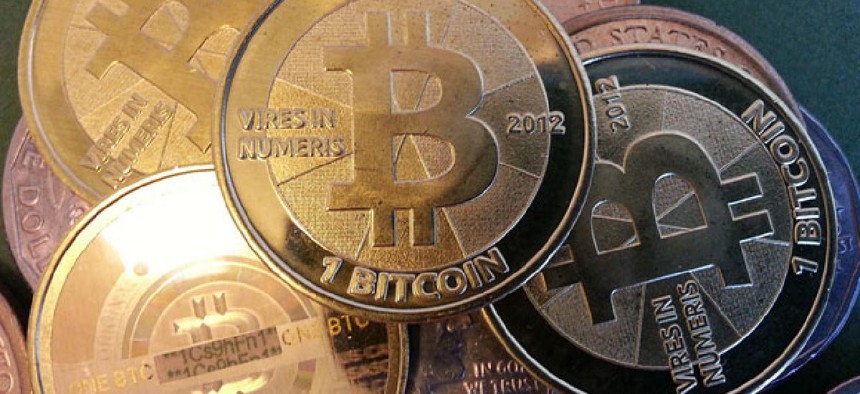How Washington Plans to Regulate Your Bitcoins

Flickr user zcopley
Spoiler: It (mostly) won't.
The Treasury Department has issued a memo explaining how it plans to oversee transactions made using Bitcoins , the online currency that's currently trading for $60 a pop.
Although other U.S. agencies have done studies on virtual currencies, this marks the first time Washington has ever actually applied existing regulations to them, according to department spokesperson Stephen Hudak.
The good news for Bitcoin and other online-currency users is that Treasury will be mostly leaving them alone. The agency's Financial Crimes Enforcement Network, or FINCEN, said in the memo that anyone who uses virtual currencies simply to buy "real or virtual goods or services" isn't taking the kind of actions that concern FINCEN the most:
A person that creates units of this convertible virtual currency and uses it to purchase real or virtual goods and services is a user of the convertible virtual currency and not subject to regulation as a money transmitter.
In plain English, if you were to buy this man's house for 6,750 bitcoins like he's asked for, nobody will swoop down on you and tell you "no." On the other hand, if you're a middleman and you help transfer the currency as part of the transaction, you'll be treated just like any other intermediary using paper money:
By contrast, a person that creates units of convertible virtual currency and sells those units to another person for real currency or its equivalent is engaged in transmission to another location and is a money transmitter. In addition, a person is an exchanger and a money transmitter if the person accepts such de-centralized convertible virtual currency from one person and transmits it to another person as part of the acceptance and transfer of currency, funds, or other value that substitutes for currency.
Banks, brokerage firms and other financial services are all regulated as money transmitters under FINCEN's rules. If they handle any transaction worth more than $10,000, they have to report it. Money transmitters are also required to report suspicious financial activity and keep detailed records on the funds they move. This means that, with the new guidance from Treasury, services that trade in Bitcoins will now have to do the same.
For a primer on Bitcoins, watch this helpful video:
( Image via Flickr user zcopley )





